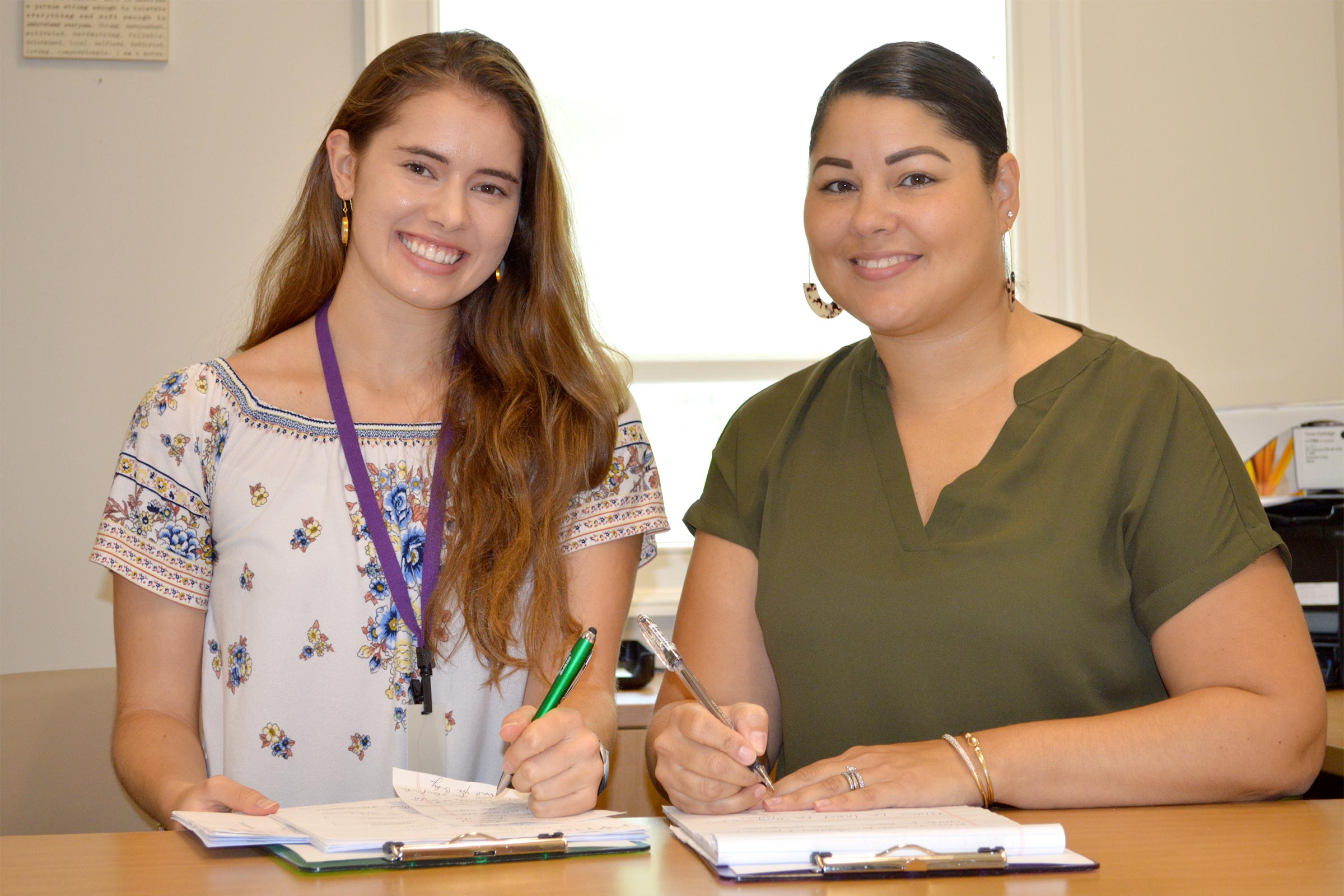November is National Hospice and Palliative Care Month. Hospice is a service that helps keep those diagnosed with a life-limiting condition and prognosis of six months or less – and their loved ones – as comfortable and peaceful as possible in the patient’s final stages of life. But many myths surround hospice. For example, hospice is not a place. It is not just for cancer patients. And hospice has no religious affiliation.
Here, we address the latter misconception with a look at
the role of the hospice chaplain.
On this rainy fall afternoon, RVNAhealth’s spiritual care coordinators, Carolyn Legg and Josh Smith, M.Div., have visited several patients and their families across the 35+ towns where our agency’s hospice services are offered.
Though they serve in the same role, they generally only see each other once every two weeks, when the interdisciplinary hospice team (which includes a medical director, registered nurses and social workers) meets.
The job title that they share reflects how their role is not about religion.
“It’s about helping patients and their families find peace
and comfort in their final days,” Josh explains. “Some of the patients I see
are very religious, while others have absolutely no interest in matters of
faith. Their faith (or lack of) informs our conversations. Fundamentally,
spiritual care is about where you find meaning and purpose in life.”
Spiritual Care is a Required Hospice Discipline


Under Medicare guidelines, pastoral care is actually a required hospice discipline. Spiritual care coordinators must meet the patient and his or her family during the first five days of care. After that, patients have the right to decline spiritual care at any time. Carolyn and Josh visit most patients every two to four weeks, though some request their company more frequently.
“Some patients – even the very religious ones, are initially so physically uncomfortable, they can’t even think about pastoral care. They just want whatever it takes to alleviate the pain,” Carolyn explains. “But then once they get comfortable, they might ask for a visit. They have complete control.”
It’s important with patients at this stage of life, she
adds. “With illness, many people have lost all sense of control – control of
their body, their mind, and, as a result, their spirit. It’s hard, because a
98-year-old man confined to bed because of Parkinson’s still in his mind thinks
of himself as a 26-year-old.”
Spiritual care interactions focus on three major themes:
- Spiritual pain: Pain that comes from the “hidden” areas of our lives, and can cause emotional distress, agitation and even physical pain.
- Meaning making: What were the most meaningful moments in the patient’s life? What do you hope your legacy will be? Would you like your family and friends present when you die?
- Grief processing: Working in conjunction with the bereavement coordinator, the spiritual care coordinators help patients and their families process grief about their illness.
Though the patients whom Carolyn and Josh visit have been
determined to have no more than six months to live, no two stories are alike.
“Some people have a great fear of their impending death, while others are just
so tired of being in pain, they’re ready to be done,” says Josh. “Some have
strong support systems of family and friends, while some have extremely
strained relationships.”
He also stresses that the spiritual care coordinator is there as much for families coping with a loved one’s deteriorating health as for the patient. “We build a relationship and trust with the family both during and after the illness,” explains Josh. “For up to 13 months after the patient’s death, under the guidance of the bereavement coordinator, we provide bereavement support to ensure that their emotional and spiritual needs are being met.”
Read More Hospice & Palliative Care Month Articles
Hospice is for Living
Hospice Music Therapy Provides Comfort and Memories



